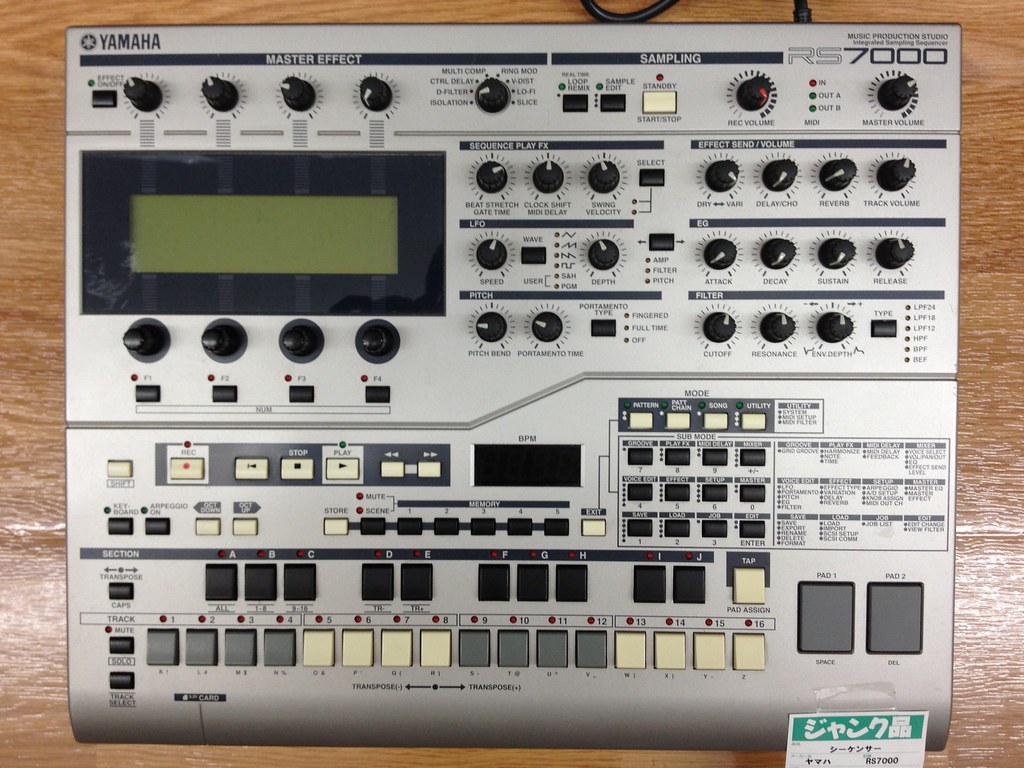Are you passionate about music? Do you have a knack for creating beats and melodies that stick in people’s heads? If so, then a career in music production may be exactly what you need to fulfill your dreams. But what does a job in music production actually entail? What skills do you need to have, and how do you get started in this competitive field? In this ultimate career guide, we’ll take a deep dive into the job description of a music producer, uncovering everything you need to know to kickstart your career in the world of music production. So if you’re ready to turn your passion for music into a successful career, keep reading!
Table of Contents

What is Music Production? A Brief Overview
Music production is the process of creating and recording music in a studio environment. It involves working with artists, musicians, and sound engineers to produce high-quality audio recordings. A music producer is responsible for overseeing the entire process of creating a song or album, from pre-production to mastering. They work closely with artists to help them achieve their creative vision and bring their music to life. This involves selecting the right equipment, setting up recording sessions, and providing guidance on everything from songwriting to instrumentation. A successful music producer must have a deep understanding of music theory, as well as technical expertise in recording software and hardware. They must also possess strong communication skills and be able to work well under pressure to meet tight deadlines.
The Role of a Music Producer: Job Description and Responsibilities
Music Producer is a crucial role in the music industry. They are responsible for overseeing the entire process of creating a song or an album, from pre-production to post-production. A music producer’s job description includes selecting and working with artists, choosing the right studio and equipment, arranging and composing music, recording and mixing tracks, and ensuring that the final product meets the artist’s vision.
To be a successful music producer, one must have excellent communication skills, creativity, technical knowledge of recording equipment and software, as well as an ear for good music. They must also be able to work under pressure and tight deadlines while maintaining a positive attitude.
Music producers can work in various genres of music such as pop, rock, hip-hop, or electronic dance music (EDM). They can also specialize in specific areas such as vocal production or sound design. A successful music producer must be versatile and adaptable to different styles of music.
Overall, a career in music production can be both challenging and rewarding for those who are passionate about creating great music.
Exploring Different Career Paths in Music Production
Exploring Different Career Paths in Music Production
There are various career paths you can take within the field of music production, depending on your interests and skills. One popular path is becoming a full-time staff producer for a record label or studio, working with musicians and artists to create their albums from start to finish.
Another option is to become a freelance music producer, taking on projects independently while building your own portfolio and client base. Some producers specialize in specific genres like hip-hop or electronic dance music (EDM), while others work across multiple genres.
You may also choose to focus on audio engineering, mastering, mixing or songwriting within the broader realm of music production. Whatever career path you decide to pursue as a music producer, it’s important to be passionate about the art form and willing to work hard towards honing your craft through continuous learning and practice.
Education and Skills Required for a Successful Career in Music Production
Formal Education: Is it Necessary for Music Production?
While there is no legal requirement for formal education in music production, having a degree or diploma can give you an edge in the industry. It shows potential employers that you have studied and mastered the technicalities of audio recording, mixing, mastering and other relevant aspects of music production. Institutions offering courses in music production provide students with access to specialized equipment and software that would have been too expensive to acquire on their own.
Additionally, formal education is an excellent way to build a professional network by connecting with classmates who may later become colleagues, collaborators or even clients. However, experience is also essential when it comes to getting jobs in this field. Aspiring producers can gain practical skills through internships or entry-level positions at studios before branching out on their own.
Technical Skills You Need to Excel in a Career in Music Production
To excel in a career in music production, you need to have a solid foundation of technical skills. These include proficiency in using Digital Audio Workstations (DAWs) such as Pro Tools, Logic Pro X, Ableton Live, and FL Studio. You should also be familiar with different types of microphones and their uses, as well as various recording techniques. Knowledge of signal flow, equalization, compression, and mixing techniques is also crucial. Additionally, understanding MIDI programming and virtual instruments can help you create unique sounds and compositions. Being up-to-date with the latest technology and software updates is essential to stay competitive in the industry.
Creative Skills Every Aspiring Music Producer Should Possess
Creative skills are essential for anyone aspiring to become a successful music producer. The ability to think outside the box and come up with innovative ideas is crucial in this field. A good understanding of music theory, composition, and arrangement is also necessary. Technical skills such as proficiency in using digital audio workstations (DAWs) and other music production software are equally important. Additionally, communication skills are vital for collaborating with artists, engineers, and other professionals in the industry. Being able to articulate your ideas clearly and work well with others can make all the difference in a project’s success.
Specializations and Certifications in the Field of Music Production
To stand out in the competitive field of music production, it’s important to have specialized knowledge and certifications. Some of the most sought-after specializations include audio engineering, sound design, and music composition. Certifications from reputable institutions such as Berklee College of Music or Full Sail University can also give you an edge over other candidates. Additionally, having experience with industry-standard software such as Pro Tools or Logic Pro is crucial. Keep in mind that while formal education and certifications are helpful, hands-on experience and a strong portfolio are equally important in this field.

Tips on Building Your Portfolio as a Music Producer
Building Your Portfolio
As a music producer, having a strong portfolio can make or break your career. A portfolio showcases your skills and abilities to potential clients and employers. This is particularly important for freelancers who often rely on their portfolios as evidence of their work experience.
To build a solid portfolio, start by creating top-quality music productions that showcase your niche and style in the industry. Consider partnering with local musicians or upcoming artists to create music together.
Another way to boost your portfolio is by collaborating with existing established producers in the industry. You may also submit demo tracks to record labels, film directors, television shows, advertising firms, and other media outlets looking for original soundtracks.
Ensure you have an online presence showcasing your work through platforms like Soundcloud or LinkedIn where people can easily find you when looking for talented producers. Accordingly optimize your profile using keywords related to music production so that it appears at the top of search results pages when people browsing job websites come across it.

How to Network and Find Job Opportunities in the Music Industry
Networking is a crucial aspect of finding job opportunities in the music production industry. Attend networking events, conferences and workshops to meet people who can help you advance your career prospects. Keep your portfolio updated and share it with potential clients or colleagues at these events. Utilize social media platforms like LinkedIn, Twitter and Facebook for professional networking purposes. Join online communities where fellow producers, engineers and sound designers connect to discuss trends within the industry. You can also reach out to local studios or record labels for an internship or apprenticeship opportunity which could lead into full-time work later on down the line. Building strong relationships in this field will go a long way towards helping you establish yourself as a viable candidate for high-profile projects in music production.

Freelancing vs Working with Record Labels: Pros and Cons
Freelancing and working with record labels are two common paths for music producers. Freelancing offers more creative freedom and control over projects, but it also requires self-promotion and business skills to find clients. Working with record labels provides a steady income and access to professional resources, but may involve sacrificing some creative control.
Freelancers can set their own rates and choose which projects to take on, but they must also handle administrative tasks such as invoicing and contract negotiation. Building a strong network of contacts is crucial for finding new clients and maintaining a steady stream of work.
Working with record labels often involves signing contracts that outline the terms of the producer’s involvement in the project. Producers may be responsible for overseeing the recording process, collaborating with artists, and ensuring that the final product meets the label’s standards. While this path may offer more stability, it can also be competitive and difficult to break into without prior experience or connections in the industry.

Salary Expectations for Music Producers at Various Experience Levels
Entry-Level Music Production Salaries: What to Expect as a Beginner
As an entry-level music producer, you can expect to earn an average salary of around $40,000 to $50,000 per year. This may vary depending on your location and the type of employer you work for. Starting salaries with a record label or major production company tend to be higher than those with smaller independent labels or freelance work. Additionally, having certifications in audio engineering or other related fields can increase your earning potential as well. Keep in mind that as you gain experience and build a strong portfolio, your salary can increase significantly over time.
Mid-Career Music Producers: How Much Can You Earn with Experience?
Experienced music producers can expect to earn a higher salary compared to entry-level and junior professionals. A mid-career music producer with 5-9 years of experience on average earns around $60,000 – $80,000 per year depending on their geographic location and the type of industry they are working for. Those who specialize in niche genres like film scoring or video game soundtracks may command even higher salaries. It’s worth noting that this is only an estimate as salaries can vary widely in the industry based on factors such as negotiation skills and reputation within the field.
Senior-Level Music Production Jobs: Top Paying Roles in the Industry
Senior-level music production jobs offer some of the highest salaries in the industry, with top-paying roles including executive producer, music director, and studio manager. These positions require extensive experience and a proven track record of success in the field. Key skills for senior-level music producers include leadership, project management, and the ability to work well under pressure. Salaries for these roles can range from $100,000 to over $1 million per year, depending on the size and success of the company or project. It’s important to note that competition for these positions is fierce, so building a strong portfolio and network is crucial for success.
Negotiating Your Salary as a Music Producer: Tips and Strategies for Success
When it comes to negotiating your salary as a music producer, it’s important to do your research and know your worth. Keep in mind that salaries can vary depending on factors such as experience level, location, and type of employer. Be prepared to provide examples of your work and highlight any unique skills or accomplishments that set you apart from other candidates. Don’t be afraid to negotiate for a higher salary or additional benefits, but also be willing to compromise and consider the overall package being offered. Remember, the key is to approach negotiations with confidence and professionalism.
Challenges Faced by Those Pursuing Jobs in the Competitive Field of Music Production
The music production industry is highly competitive, and landing a job can be challenging. One of the biggest challenges is standing out from the crowd. With so many aspiring producers vying for the same positions, it’s essential to have a unique skill set and portfolio that sets you apart.
Another challenge is keeping up with the ever-changing technology and software used in music production. Staying current with the latest trends and techniques is crucial to remain relevant in the industry.
Networking can also be a challenge for those new to the field. Building relationships with industry professionals takes time and effort, but it’s essential for finding job opportunities and advancing your career.
Finally, working in music production often involves long hours and tight deadlines. The pressure to deliver high-quality work quickly can be stressful, so it’s important to have strong time management skills and be able to work well under pressure.

How to Succeed as a Newbie in the World of Professional Audio Mixing
In order to succeed as a newbie in the world of professional audio mixing, it is crucial to invest time and effort into improving your craft. Start by learning the basics of sound engineering, such as EQing, compression, and signal flow. There are plenty of online resources available for free or at a low cost that can help you gain proficiency in these skills.
It is also important to seek out feedback on your work from other professionals in the industry. Join online forums and communities where you can share your music and receive constructive criticism from experienced producers.
Networking with other musicians and industry professionals is another key factor to success. Attend events, workshops, and conferences to meet potential collaborators or employers.
Above all else, perseverance is vital in this field. It may take time before landing your dream gig as an audio mixer or producer but continuously working hard will pay off eventually. Keep practicing even when faced with rejection because every setback will teach valuable lessons that push you further towards building a successful career in music production.
In conclusion, music production is a dynamic and exciting field that offers a wide range of career opportunities for those with a passion for music and sound. Whether you’re interested in working as a producer, audio engineer, or sound designer, there are many paths to explore in this industry. With the right education, skills, and networking strategies, you can build a successful career in music production and make your mark on the world of music.
We hope this ultimate career guide has provided you with valuable insights into the world of music production and helped you understand what it takes to succeed in this competitive field. If you’re interested in learning more about music production or related topics, be sure to check out our other content on this website. Thank you for reading!


